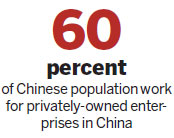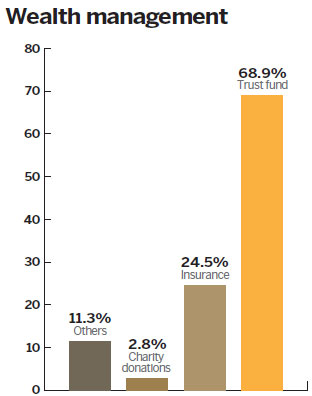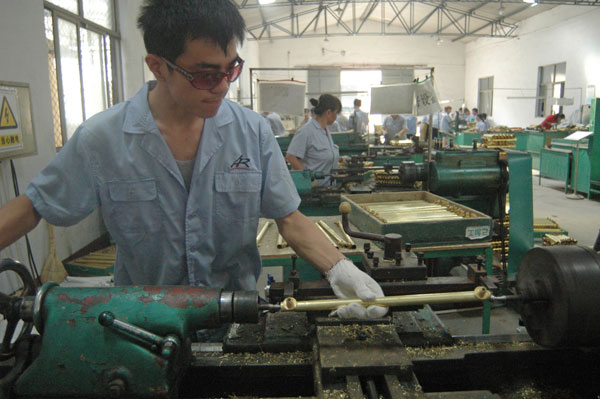Baton passes to the next generation
Updated: 2015-08-14 08:57
By Yu Ran(China Daily Europe)
|
|||||||||||
Pan's story, in fact, is set to be played out across the country.

After all, the first generation of entrepreneurs made their fortunes by the sweat of their brows, producing cut-price export goods such as shoes, clothes and electrical appliances during a booming global economy.
That has since changed. The recession in the United States and Europe after the financial crisis in 2008 hit overseas orders, while countries such as Vietnam, Indonesia, Cambodia and Bangladesh are now under-cutting clothing and shoe companies in China.
For the second generation in family-run businesses, the task is obvious in a turbulent business world. But while innovation and ideas are vital, it is important they retain the cultural values of their parents.
"I have been teaching my son about having the right views about wealth, independent spirit and creative abilities," Xu Lixun, the executive director and president of Huamao Group, an educational service provider, says at the CEIBS forum. "It is also important to maintain the family's governance structure."

Raphael Amit, a professor of management at Wharton School at the University of Pennsylvania in the US, pointed to another key area that can help family-run enterprises move confidently into the middle part of the 21st century.
The majority of second-generation managers have been educated abroad and have a wider global perspective than their parents when it comes to doing business.
"This will be important," he says. "But running a family-owned company can be a difficult balancing act. You need to preserve growth and financial capital while ensuring a smooth succession."
Another crucial aspect in handing over these firms from one generation to the next is wealth management.
Last month, a CEIBS report explored the risk diversification of cross-border assets and inherited wealth for business owners with more that 10 million yuan.
"Privately-owned enterprises in China have not only produced jobs for more than 60 percent of the population, but they have also created great fortunes, which have to be managed well," Rui Meng, co-director of CEIBS Centre for Family Heritage, says.
"We expect wealthy family businesses to pass on their assets in a planned manner, with the help from specialized financial planners," he adds.
But not everyone is seeking "professional" advice. The CEIBS report revealed that more than half of the 112 family businesses polled still manage their own wealth. Even so, 40.2 percent of these companies had turned to wealth management firms.
"Within this group of families, 68.9 percent of them opted for an overseas trust agency and 83.7 percent of them use this as their main investment method," the report highlights.
yuran@chinadaily.com.cn
Today's Top News
Sodium cyanide in Tianjin to be collected, neutralized
Premier Li pledges thorough investigation into deadly blasts
Experts say J-10s would benefit Iran
Indonesia rescuers head to mountains in missing plane search
Questions remain as fires put out after Tianjin blasts
China probes into Tianjin blasts, experts focus on chemicals
Crafty rhetoric, insincere politics
Japan's Abe offers no fresh apology for past aggression
Hot Topics
Lunar probe , China growth forecasts, Emission rules get tougher, China seen through 'colored lens', International board,
Editor's Picks

|

|

|

|

|

|






